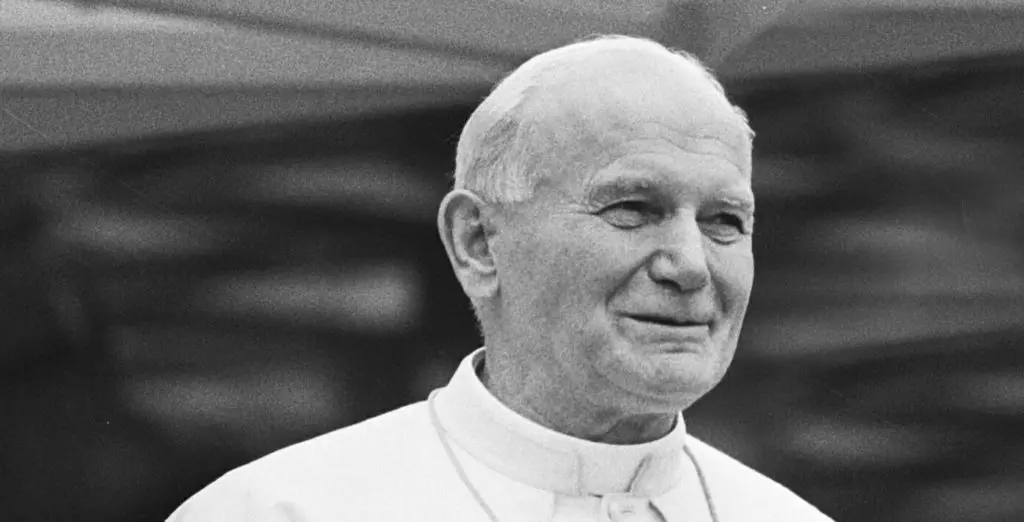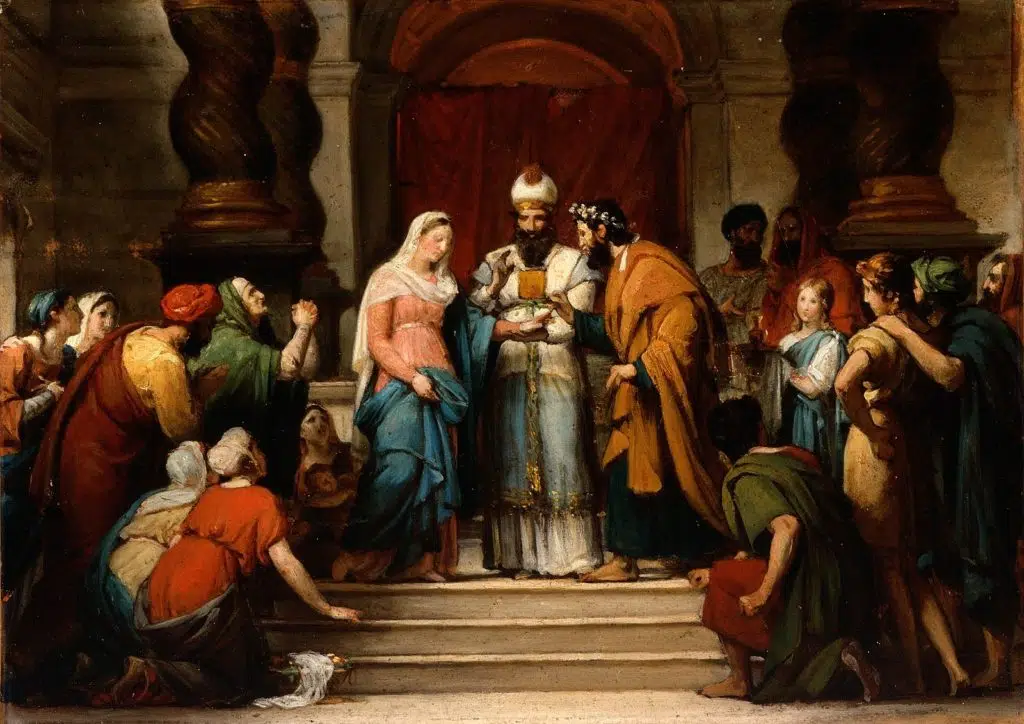“If you want to change the world, go home and love your family.”
― St. Teresa of Calcutta
“I would remind married couples that marriage is not an ideal but the measure of true love between a man and a woman: a love that is total, faithful, and fruitful. This love makes you one flesh and enables you, in the image of God, to bestow the gift of life.”
― Pope Leo XIV
In a world fractured by individualism, instability, and cultural confusion, it is the family that possesses the power to heal. At least, that’s what the Catholic Church has continually taught, particularly in recent decades as attacks on the family have increased, and as so many families have broken apart, causing untold suffering and confusion.
Pope St. John Paul II, in his apostolic exhortation Familiaris consortio [1], wrote: “The future of humanity passes by way of the family” (no. 86). Elsewhere in the same document he calls the family the “first and vital cell of society” (no. 42).

These are no mere slogans. They state self-evident (or what should be self-evident) facts. Without strong, faithful families, there can be no stable society, no lasting culture, and no enduring civilization.
For children, the home is the first classroom where they are taught not by lectures but by example. The daily witness of parents shapes their sense of right and wrong, their understanding of God, and their vision of what it means to live a good life.
The First School of Love
The Catechism of the Catholic Church [2] declares that “the family is the original cell of social life” and “the first school of Christian life” (nos. 1657 & 2207).
That means that no institution—no matter how well-funded or structured—can replace the role of parents. As Familiaris consortio insists, “The right and duty of parents to give education is essential, since it is connected with the transmission of human life; it is original and primary with regard to the educational role of others…” (no. 36).
Catholic parents must take this mandate seriously. It is not enough to outsource education (especially education in faith!) to schools or parishes. Parents must be the first educators, evangelists, and the first spiritual guides.

As Pope Leo put it [3] just a few days ago, “a family is usually the first place where we receive the love and support we need to move forward and overcome the trials we face in life.”
It is in the home where children first encounter truth, beauty, and goodness. Here, children are taught the meaning of sacrifice by observing the love of their parents. They learn Christ-like forgiveness through experiencing the forgiveness of their parents and siblings whenever they cause another hurt. They learn what it means to enter into deep, meaningful relationships, in which each person prioritizes the well-being of the other, and is willing to look past the faults of the other in order to nurture a mutually-enriching love.
When Families Break Culture Fractures
Without intact, strong families, however, children are left exposed to many of the malevolent forces at work in the world. In The Power of Silence, Cardinal Robert Sarah repeatedly bemoans the attacks on the family. As he writes there “the family is the great rampart of love! It is the ultimate recourse of all who know that they are in danger. When everything is going badly, one naturally returns to his family.”
However, he goes on to lament, “from divorce to gender theory, by way of abortion and contraception, it seems that the institution of the family has become the focus of all the attacks and all the contempt.”
Because of these attacks, many young people do not know what it feels like for the home to be a place of refuge, safety, and belonging. For many, the home is little more than the building in which people to whom they are related live. But they do not live together. Each family member lives his own isolated life, going off to work, or school, and spending as little time inside the home as possible. The family members do not eat together, do not play together, do not pray together.
For others, there is no one single home at all. They are shuttled back and forth between houses, spending some time with their mother, and some time with their father, and perhaps with the rotating list of partners with whom their parents are in relationships.
Cultural and Spiritual Heritage
Like any school, the family is the guardian of memory. Within the walls of the home, children learn where they come from, what they believe, and how they belong. They are shaped by family stories, holiday traditions, and the example of ancestors who lived and died in the faith.
In this way, the family serves as a living bridge between generations. It passes on more than customs; it hands on a worldview—a vision of the human person rooted in dignity, love, and responsibility. This heritage becomes a compass for children as they navigate an increasingly rootless world.
When families fail, this chain breaks. Children are left to invent themselves without the tools to do so. This often produces a deep identity crisis.
“I think that the family is an institution that is utterly unbearable to the devil,” writes Cardinal Sarah in The Power of Silence. He continues,
Because it is, par excellence, the place of love and gratuitous self-giving, it arouses his hatred and violence. Even more profoundly, the union of father, mother, and child is a trace of the fruitful unity of the Divine Trinity. Through families, the devil tries to profane the Trinitarian Unity. Above all, he wants to deprive innocent children of love and a happy childhood. In destroying families, the one who is “a murderer from the beginning” does nothing but reenact the massacre of the Holy Innocents.
Witnesses to Holiness
However, the Catholic Church goes even further than this in its praise of the family. Not only is it the basic unit of society, and the first school of love, but it is also the “domestic church”! In other words, the family partakes directly in the salvific mission of the Church Herself.
As I wrote last week, Pope Leo XIV has recently highlighted the witness of Louis and Zélie Martin, the parents of St. Thérèse of Lisieux, canonized for their holiness in married life. “By pointing to them as exemplary witnesses of married life,” Pope Leo said [4], “the Church tells us that today’s world needs the marriage covenant in order to know and accept God’s love and to defeat, thanks to its unifying and reconciling power, the forces that break down relationships and societies.”

This is a clarion call. The renewal of the Church and the world begins not in legislative chambers or corporate boardrooms, but in living rooms, kitchens, and at family dinner tables. It begins when parents place Christ at the center of their lives and raise children who know they are loved, created for a purpose, and destined for Heaven.
Family Missionaries Of the World
Similarly, Catholic culture is not primarily built in parishes or schools, as important as those are. It begins in the home, because this is where children first hear the Gospel, and see the Christian life exemplified.
Through even simple things like prayer before meals, meals eaten together as a family, and through the love that family members show one another in ordinary, day-to-day events, a Catholic home teaches children how to live in right relationship with God and neighbor.
In other words, holiness is not reserved for monasteries and cathedrals; it is cultivated in the hidden corners of everyday life—in diaper changes and bedtime prayers, in shared meals and shared sorrows—in the ordinariness of family life.
In this sense, the family is a missionary outpost of the Church. By their unity, their generosity, their openness to life, and their commitment to truth, Catholic families proclaim the Gospel more powerfully than any words could. The world may not understand or believe in the teachings of the Church, but it cannot ignore the power of love.
As Pope St. John Paul II beautifully expresses, “The family has the mission to guard, reveal and communicate love, and this is a living reflection of and a real sharing in God’s love for humanity and the love of Christ the Lord for the Church His bride” (Familiaris consortio, no. 17).
Holy Families in the World
The Church’s mission to evangelize the world hinges on the strength of its families. Every vocation—to priesthood, religious life, or Christian marriage—has its seed in the family. Every saint begins as a son or daughter. And every culture begins with a home.
This is why the Church tirelessly defends the family against all threats. Because when the family is undermined, the very foundation of civilization is shaken.

Cardinal Sarah wrote in The Power of Silence that there is an “urgent” need to defend and support families. “This is not only a moral duty; it is part of the spiritual combat,” he said. “It is necessary to help spouses love each other faithfully their whole life long. They bear the image of God’s very own fidelity to his people and particularly to the most vulnerable and to the children.”
Living Witnesses to the Gospel
In our time, Catholic families must rise with renewed courage and clarity. They must reject the false narratives of the age and embrace their identity as domestic churches. They must love deeply, pray faithfully, and raise their children with hope.
Pope St. John Paul II concluded Familiaris consortio with a call to courage and confidence: “Family, become what you are!” (no. 17). In other words, embrace your identity, live your mission, and trust in the grace of Christ who sanctifies your love.
For it is through the family that the Church will renew the world, one child, one home, one generation at a time.